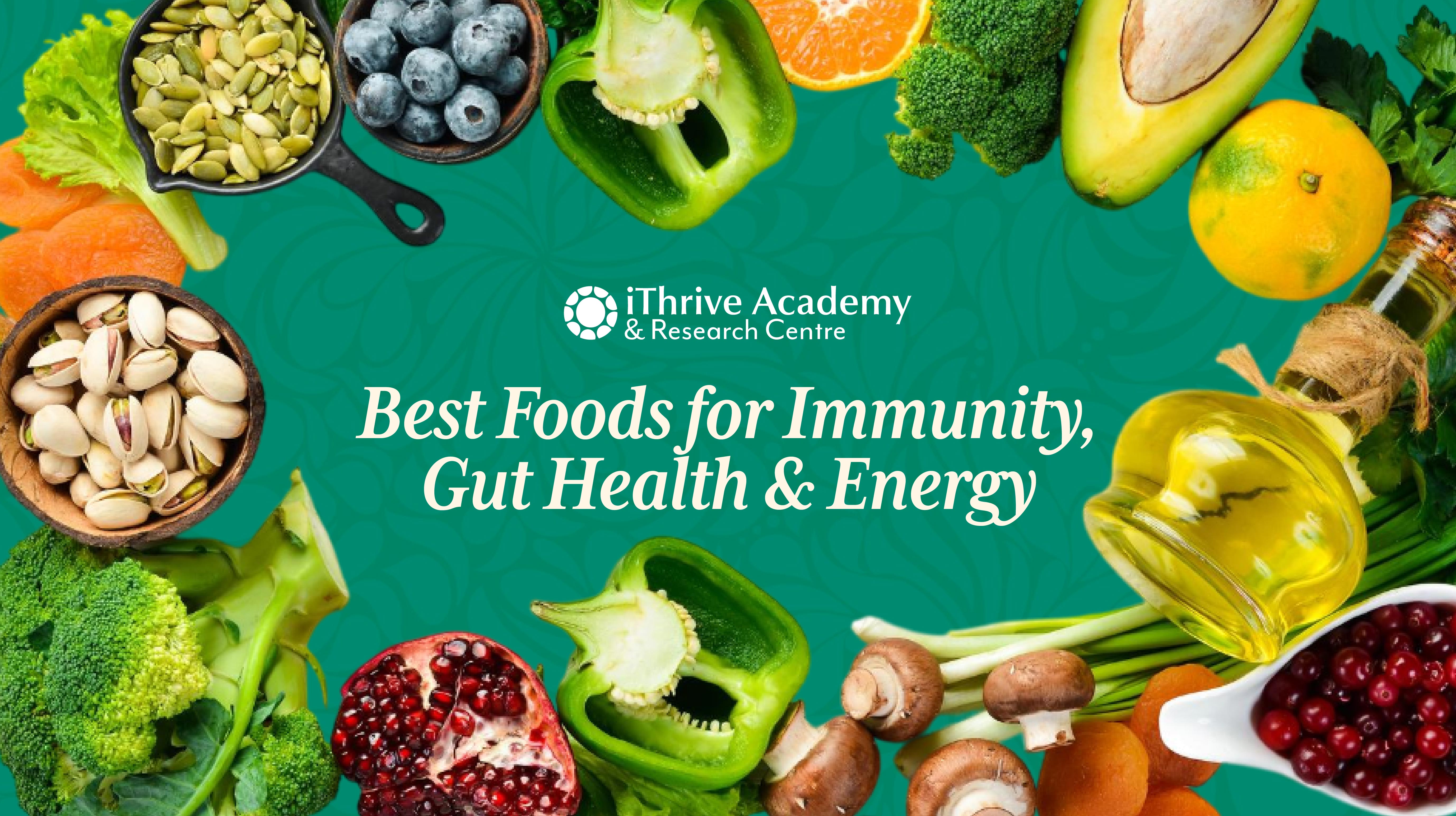Do you often wonder why, despite working out consistently, your muscles don’t look or feel stronger? Or maybe you feel you’re eating “healthy,” but the results are not showing up in your performance, recovery, or physique. You’re not alone. Research work has revealed that more than 70% of people training regularly struggle a lot to maximise muscle protein synthesis, the process that helps muscles to repair and grow after workout.1
This blog will break down what muscle protein synthesis actually means, why it’s crucial for your fitness and longevity, and most importantly, the top foods that can help you optimize it naturally. By the end, you will also discover how iThrive Academy’s functional medicine-based approach goes far beyond the conventional diet rules, empowering one to take charge of their own health and overall performance.
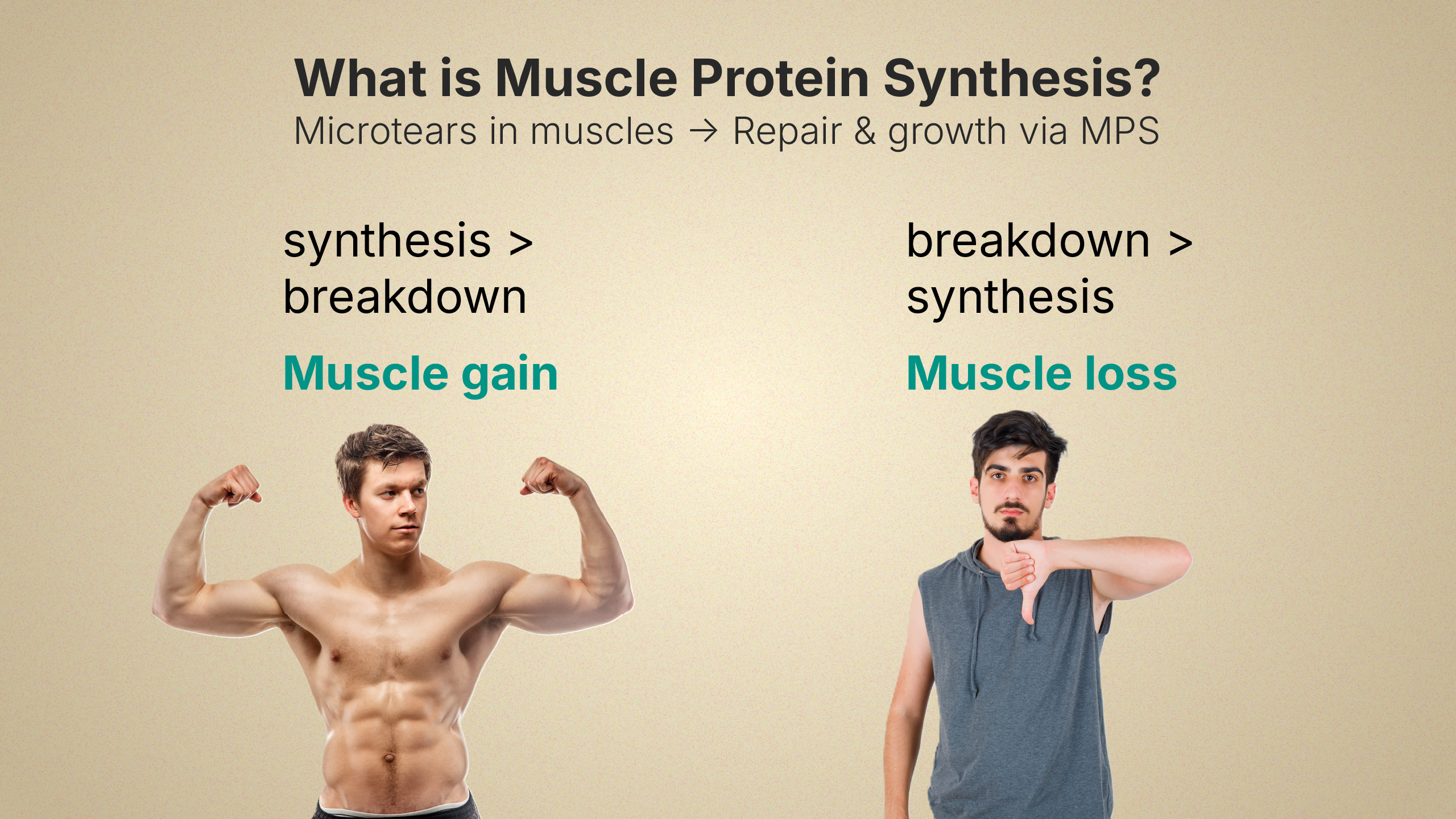
What is Muscle Protein Synthesis and Why Does It Even Matter?
Muscle Protein Synthesis (MPS) is your body’s process of repairing and building new muscle fibers after stress, which is mostly a workout. Visualize it like fixing cracks in a wall and then reinforcing them to make the wall even stronger. Every time you do resistance training, cardio, or even daily movement, your muscle fibers go through microtears. MPS is how your body adapts and comes back stronger.
When MPS is comparatively higher than muscle breakdown, you tend to gain muscle. But when breakdown exceeds synthesis, you start losing muscle, further having an impact on not just strength and physique, but also your energy, immunity, and metabolism.
Most Common Myths Around Building Muscle
“Protein powders alone will build muscle.” NOT TRUE. Protein shakes and bars are just the tools, but they must be effectively paired with the right foods, timing, and workouts.
“Carbs are bad for muscle growth.” In reality, carbohydrates fuel your workouts and help in recovery by restoring glycogen, making them a part of a balanced building muscle diet.
“You only need gym workouts to grow muscle.” Nutrition is as important as your building muscle workout plan. Without the right foods, your progress will stall.
Foods That Help Boost Muscle Protein Synthesis
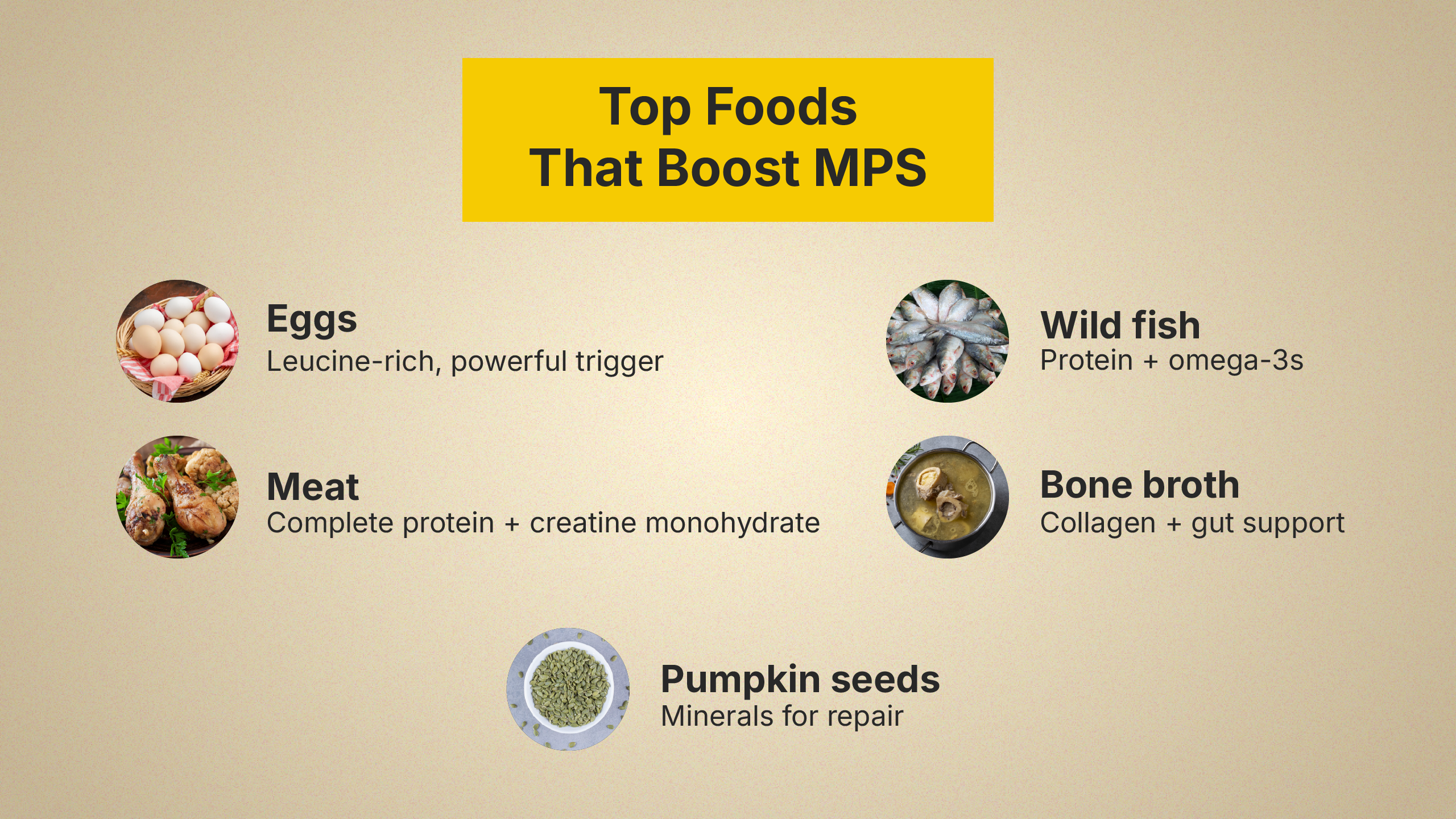
1. Free-Range Eggs are the best foods for building muscle protein.
Eggs are one of the best foods for growing muscle since they are high in essential amino acids like leucine. They directly trigger muscle protein synthesis and support recovery after intense training.
2. Meat
Animal protein of high quality has all the amino acids your body needs, as well as creatine monohydrate, iron, and B vitamins. These nutrients make meat a must-have for everyone who wants to grow muscle.
3. Wild-Caught Fish
Salmon, sardines, and mackerel not only deliver complete protein but also anti-inflammatory omega-3 fatty acids. This helps reduce exercise-induced muscle soreness while supporting synthesis.
4. Organ Meats (Liver, Heart)
Often overlooked, organ meats are nutrient-dense powerhouses. They provide high-quality, complete protein to stimulate MPS, along with B vitamins (specifically B12), iron, and CoQ10, all critical for energy metabolism, oxygen delivery, and recovery. Their dense micronutrient profile makes them far more supportive for muscle repair and overall performance than collagen-rich foods.
5. Nuts and seeds (in small amounts)
While not as protein-dense as animal foods, certain seeds like pumpkin seeds add minerals like magnesium and zinc, crucial for muscle repair and energy metabolism.
The iThrive Academy Approach
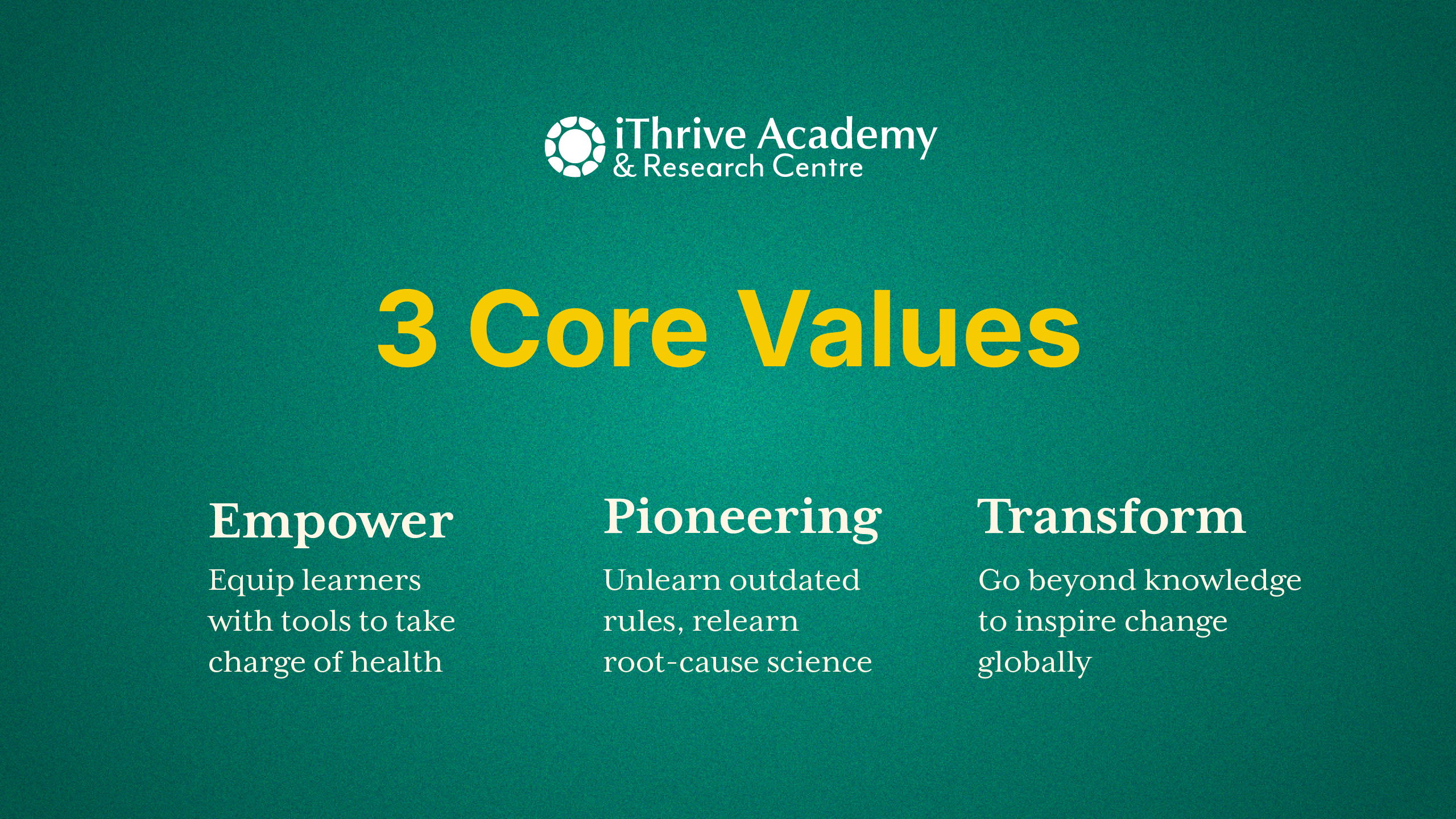
At iThrive, we go far beyond “eat more protein” advice. Our functional medicine-based Root Cause Analysis (RCA) uncovers exactly why your body may not be utilizing the protein in an efficient manner. For some people, it could be gut health issues, and for others, chronic inflammation or poor recovery strategies.
This is how and why we are different:
Empower: We give our students a lot of knowledge and skills to improve their own health and help others do the same.
Pioneering: We break away from the conventional nutritional learnings. And, instead of pushing generic advice like "have plenty of whey protein," we rather help you unlearn the outdated ideas and relearn what truly supports the health of muscles.
Transform: We create true transformation by shaping the practitioners who don’t just learn, but also lead and inspire healing at scale.
Our programs integrate cutting-edge nutrition, functional testing, and practical applications, helping you understand not only what to eat, but why.
Advice for Boosting Muscle Protein Synthesis
Spread protein out among your meals - Try to get 25 - 35 grams of good protein in each meal, not just dinner.
Plan Your Meals Around Your Workout - Protein shakes or other high-quality foods that help develop muscle are best eaten after a workout.
Don't just train; focus on recovery - Sleep, drink enough water, and manage stress as all have a direct effect on MPS.
Take smart supplements - A high-quality protein powder that doesn't have gluten, seed oils, or chemicals, and essential amino acids can give your MPS a big boost.
Avoid the Pitfalls - Stay away from manufactured protein bars full of sugar and dairy-heavy powders that make you feel bloated or have stomach problems.
Conclusion
Muscle protein synthesis is the key driver of muscle growth, strength, and overall vitality. The good news? By fueling your body with the right foods, timing nutrition properly, and applying a holistic approach, you can unlock better results from every workout.
At iThrive Academy, we go beyond surface-level hacks and dive deep into root-cause science to help you heal, build, and thrive. Whether you’re an aspiring health coach or simply looking to optimize your own performance, Alive 2.0 and our RCA-based programs are designed to transform knowledge into lasting impact.

Reference
https://arxiv.org/html/2410.16169v1



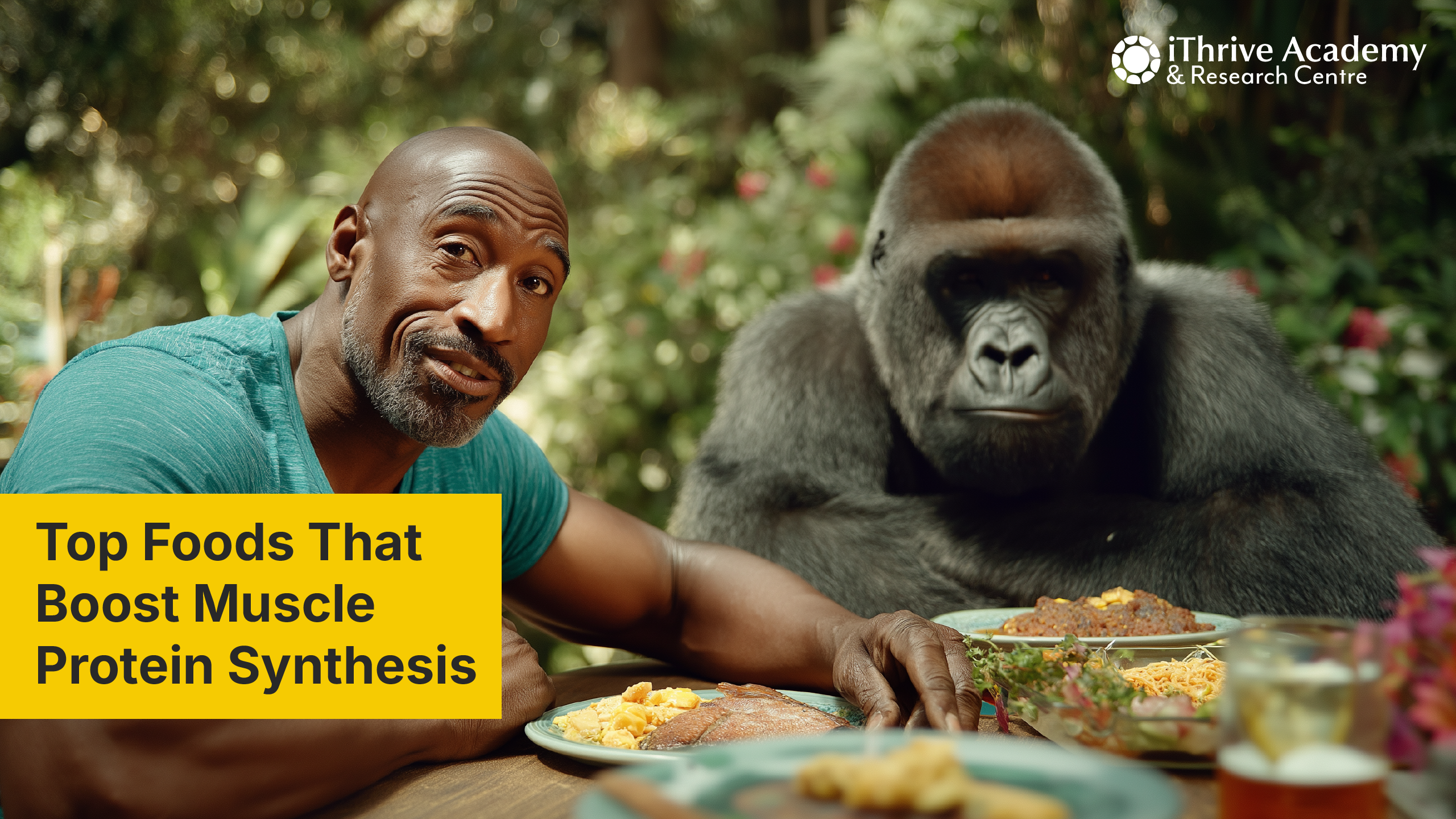






.jpg)

